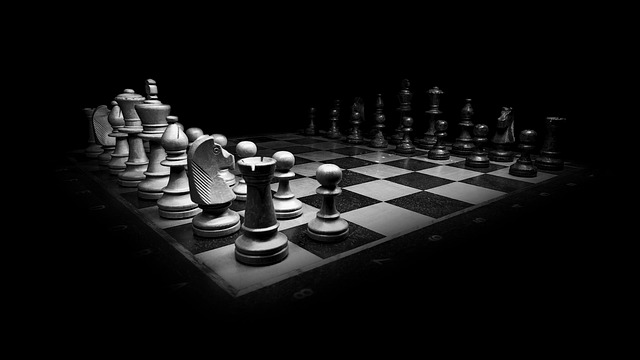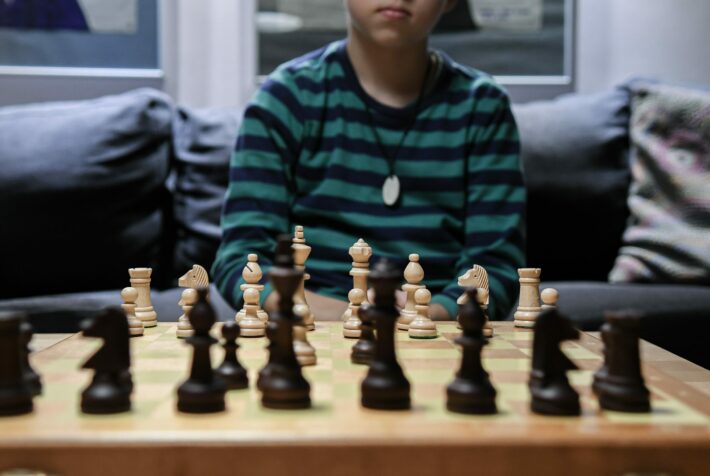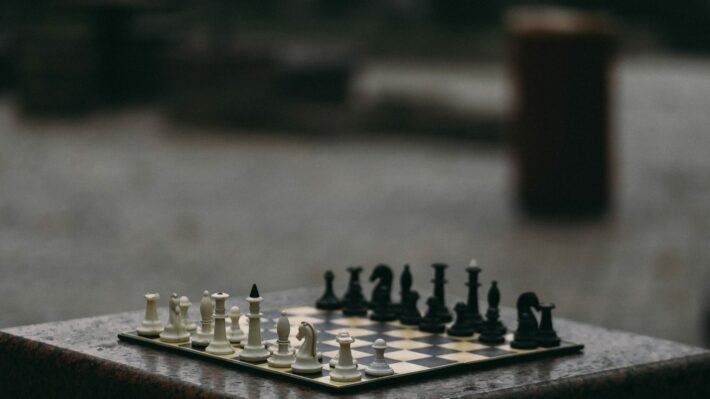Chess, a game of intellect and strategy, has captured the hearts of millions around the world. In the realm of casual play, one particular tool has garnered both praise and criticism: the chess timer. Designed to add an element of time pressure, this device can significantly alter the dynamics of a game.
In this article, we delve into the pros and cons of incorporating a chess timer into your casual play sessions, shedding light on the fascinating implications it can have on your overall experience.
Is the Chess Timer a Friend or Foe in Casual Play?
The chess timer can be both a friend and a foe in casual play, depending on the player’s perspective. While it adds an exciting element of time pressure and intensity to the game, some players may find it stressful or overwhelming.
It ultimately comes down to personal preference and the desired level of challenge one seeks in their chess experience.
What Are the Benefits of Using a Chess Timer?

Using a chess timer brings several benefits to casual play. Firstly, it adds an element of urgency and time management, forcing players to think and make decisions more efficiently. It enhances strategic thinking and tactical planning, as players must consider their moves within a limited timeframe.
Additionally, the timer promotes fairness and equal opportunity, preventing any player from monopolizing excessive thinking time. Lastly, it can improve players’ overall time management skills, translating into better performance in competitive play.
Does the Timer Enhance Strategic Decision-Making?
Absolutely! The chess timer’s presence sharpens strategic decision-making in casual play. With limited time available, players are compelled to evaluate various moves swiftly and prioritize their actions.
This time pressure often leads to more focused thinking and efficient decision-making processes. As a result, players learn to weigh their options, anticipate consequences, and devise effective strategies within the allocated time, elevating the depth and complexity of their gameplay.
How Does Time Pressure Affect the Quality of Moves?
Time pressure can have a significant impact on the quality of moves in casual chess play. With the clock ticking, players may feel compelled to make hasty decisions, potentially sacrificing precision and thorough analysis.
The pressure can lead to more impulsive moves or oversights, increasing the likelihood of errors. However, it also challenges players to think quickly and adapt their strategies, fostering resourcefulness and creativity. Balancing speed and accuracy becomes crucial to maintain a high-quality gameplay experience.
Can the Chess Timer Improve Concentration and Focus?
Indeed! The chess timer acts as a catalyst for concentration and focus during casual play. The constant awareness of time ticking away demands players’ undivided attention, sharpening their focus on the board and the game at hand.
By maintaining a heightened state of concentration throughout the match, players can avoid distractions, stay engaged, and fully immerse themselves in the intricacies of the game. The timer becomes a powerful tool to cultivate mental discipline and enhance the overall gameplay experience.
Are Players Forced to Rely on Intuition More with a Timer?

Absolutely! When under the pressure of a chess timer, players often find themselves relying more on their intuition. With limited time for in-depth analysis, intuition becomes a valuable asset in making quick and instinctive decisions.
Players develop a sense of patterns, positions, and intuitive understanding that allows them to navigate the game effectively within the allotted time. The timer encourages players to trust their instincts and harness their intuitive skills, leading to exciting and unpredictable gameplay scenarios.
Does the Timer Intensify the Thrill of the Game?
Undoubtedly! The chess timer intensifies the thrill of casual play by injecting a sense of urgency and competition into each move. The ticking clock adds a captivating element of suspense and pressure, heightening the adrenaline rush as players strive to make decisive moves within the time constraints.
The timer amplifies the excitement of strategic battles, creating an exhilarating atmosphere where every second counts. Whether playing for fun or challenging an opponent, the presence of a timer adds an extra layer of excitement to the game.
Are Casual Players More Likely to Make Mistakes Under Time Pressure?
While casual players may experience increased pressure under time constraints, it doesn’t necessarily mean they are more prone to making mistakes. The impact of time pressure on individual players can vary. Some casual players thrive in high-pressure situations, making sharp moves and strategic decisions.
However, for others, the time pressure can lead to rushed or impulsive moves, potentially resulting in errors. It ultimately depends on the player’s ability to handle the pressure and maintain composure while making calculated moves within the limited time available.
Is the Chess Timer Suitable for Players of All Skill Levels?
Absolutely! The chess timer is suitable for players of all skill levels in casual play. Whether you are a beginner exploring the fundamentals or an experienced player honing your strategic prowess, the timer adds an exciting and dynamic element to your games.
For beginners, it helps develop time management skills, while advanced players benefit from the added challenge and the opportunity to refine their decision-making abilities under pressure. The timer’s versatility makes it an invaluable tool for players at any stage of their chess journey.
Does the Timer Level the Playing Field between Beginners and Experts?
The chess timer serves as a great equalizer, leveling the playing field between beginners and experts in casual play. Unlike the absence of time constraints, which may allow more experienced players to dominate the game with their strategic prowess, the timer imposes a common limitation on both sides.
This evens out the competition, giving beginners a fair chance to think, plan, and execute their moves within the allocated time. It encourages beginners to challenge themselves and learn from their mistakes, while experts must adapt their strategies to perform under the pressure of limited time.
The timer fosters an environment where players of varying skill levels can engage in exciting battles and experience the thrill of a balanced matchup.
Are Rapid Chess Timers More Challenging than Standard Ones?

Without a doubt, rapid chess timers introduce a heightened level of challenge compared to standard timers in casual play. Rapid timers impose shorter time limits, forcing players to think and act swiftly.
The reduced time available for each move demands efficient decision-making and often leads to more intense and fast-paced gameplay. It adds an extra layer of pressure and adrenaline to the game, pushing players to their limits.
While standard timers offer a more relaxed pace, rapid timers truly test players’ ability to strategize and execute under significant time constraints, providing an exhilarating and mentally stimulating experience.
Does the Timer Encourage Risk-Taking or Conservative Play?
The chess timer’s influence on gameplay style varies from player to player. For some, the timer acts as a catalyst for risk-taking and daring moves in casual play. With limited time, players may feel compelled to take calculated risks to gain an advantage or put pressure on their opponent.
On the other hand, the timer can also promote a more conservative approach, as players aim to make solid and reliable moves within the allotted time. It depends on the individual’s playing style and mindset.
Some may thrive on the excitement of taking risks, while others may prefer a cautious and strategic approach. The timer’s presence sparks a fascinating interplay between calculated aggression and thoughtful defense, enriching the overall dynamics of the game.
How Does the Timer Impact the Psychological Aspect of the Game?
The timer has a profound impact on the psychological aspect of chess in casual play. The constant reminder of time ticking away evokes a sense of urgency and pressure, testing players’ nerves and mental fortitude.
It challenges players to stay focused, composed, and adaptable under the ticking clock, managing their emotions while making critical decisions. The psychological impact can vary from player to player, as some thrive under pressure, harnessing it as a source of motivation, while others may experience anxiety or stress.
The timer transforms the game into a mental battle, where players must navigate the psychological terrain alongside the strategic elements of chess, making it a captivating and psychologically engaging experience.
Are There Drawbacks to Using a Chess Timer in Casual Play?
While the chess timer brings excitement and challenges to casual play, it does have some potential drawbacks. The time pressure can lead to rushed or impulsive moves, increasing the chances of errors or oversights.
Players may feel anxious or stressed as they strive to make decisions within the limited time, impacting their overall enjoyment of the game.
Additionally, some players may find the timer distracting or disruptive to their thought process, detracting from the natural flow of the game. It is important for players to find a balance and ensure that the timer enhances the gameplay experience without overshadowing the strategic aspects or causing undue stress.
Can Players Improve Their Time Management Skills with a Timer?
| Aspects | Pros | Cons |
|---|---|---|
| Enhanced Focus |
|
|
| Strategic Decision-Making |
|
|
| Equalizing Effect |
|
|
| Psychological Impact |
|
|
| Improvement of Skills |
|
|
Undoubtedly! The chess timer serves as an excellent tool for players to improve their time management skills in casual play. With the consistent pressure of time constraints, players learn to allocate their thinking time wisely, distinguishing between critical moves and less impactful ones.
They develop the ability to make decisions efficiently and prioritize their thought process. Over time, players become more adept at analyzing positions, assessing risks, and planning their moves within the given time frame.
These improved time management skills extend beyond chess and can be applied to various aspects of life, making the timer an invaluable asset for personal growth and strategic development.
Wrap-up
In conclusion, the chess timer adds a captivating dimension to casual play, both enhancing and challenging the overall chess experience. It serves as a friend and a foe, leveling the playing field and sharpening strategic decision-making for players of all skill levels.
The timer’s impact extends beyond the game board, influencing concentration, risk-taking, and the psychological aspects of gameplay. While there are potential drawbacks, such as increased pressure and the possibility of mistakes, the timer offers an opportunity for players to improve their time management skills and foster mental agility.
Whether you embrace the excitement of rapid timers or prefer the measured pace of standard ones, incorporating a chess timer into your casual play can transform the game into a thrilling and intellectually stimulating endeavor. So, grab your timer, embrace the challenge, and embark on a chess journey where time becomes an integral part of the strategic tapestry.




